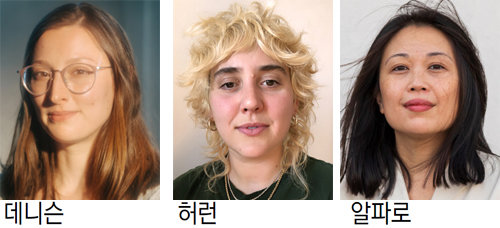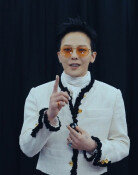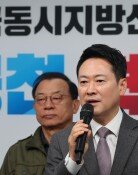International publishers find Korean literature ‘amazing and beautiful’
International publishers find Korean literature ‘amazing and beautiful’
Posted June. 01, 2022 07:24,
Updated June. 01, 2022 07:39

Book publishers are looking forward to the Seoul International Book Fair held from June 1 to 5. Unlike the past two years when the event was held online or restricted to a small scale event, this year’s event will be attended by 18 publishers abroad and 47 speakers from 12 countries. How do international publishers view Korean literature? Your reporter met with three publishers from the U.S., Canada and the U.K. who attended the “How Korean literature captured international spotlight” conference.
Public Relations Director Britney Denison of the U.S. New Direction Publishing (founded in 1936) contributed to poet Kim Hye-soon winning the U.S. Lucien Stryk Translation Award. Senior editor Tracy Hurren is responsible for planning and editing at Drawn & Quarterly (founded in 1990). Christine Alparo works at U.K. Tilted Axis Press, founded in 2015 by Deborah Smith who translated Han Kang’s Vegetarian.
- What was your first impression of Korean literature?
“I was so excited, as there were so many types of literature works that I had not read before. I experienced the joy of discovery.” (Hurren)
- What makes you introduce Korean literature to the world?
“Korean literature is amazing and beautiful. Let me take poet Kim Hye-soon’s ‘The Autobiography of Death.’ The motive of the poem was taken from an event in Korea (the sinking of Sewol) but the poem is so powerful to be read by only Koreans.” (Denison)
“Japanese literature is well known in the U.S. and Canada, unlike Korean literature. There is demand in North Korea for Korean literature.” (Hurren)
- Korean writers, such as Lee Su-ji, Jeong Bora, Son Won-pyeong, have gained international attention. How do you view this significance and what are some tasks at hand?
“There is a growing readership for Korean literature in North America. The growth of K-pop culture, including BTS, Squid Game and Parasite, has driven attention for Korean literature as well. However, Korean literature needs to be recognized for its own value, not just by drawing attention via pop culture.” (Hurren)
“Korean literature works winning or being nominated for international literature awards multiple times in a year can be a double-edged sword. When they get the spotlight, many readers will pay attention to Korean literature. However, the judges of the award may be hesitant to give awards to other Korean literature works (due to country allocation issues).” (Denison)
“The success of Korean literature in the world was largely driven by translators such as Anton Hur, who translated Cursed Bunny. I work with several Korean translators who not only work hard on translation work itself but also promote the works they translate. Great translators will help Korean literature succeed.” (Alparo)
hoho@donga.com







